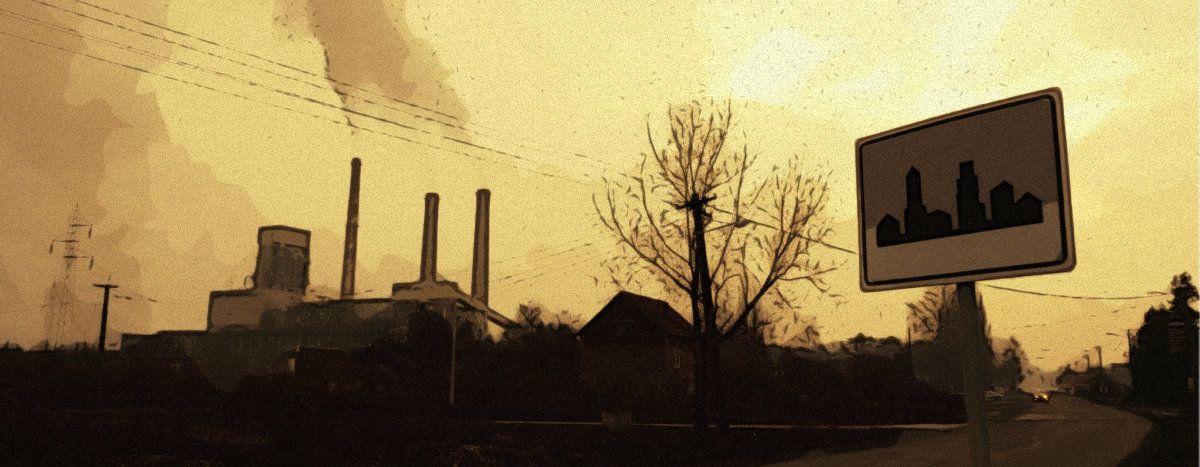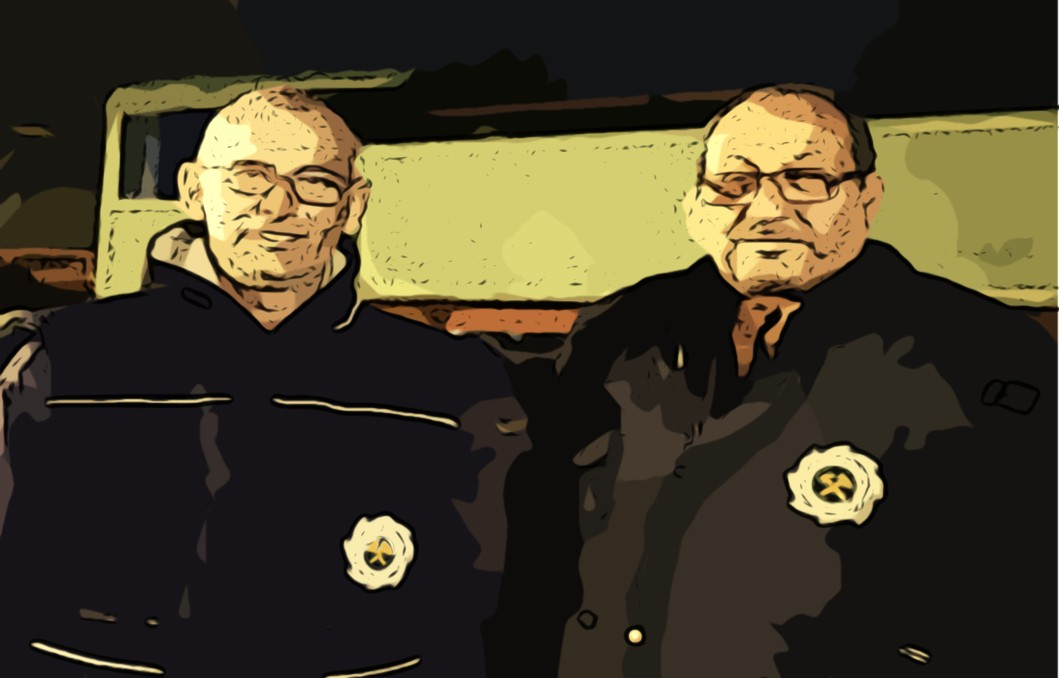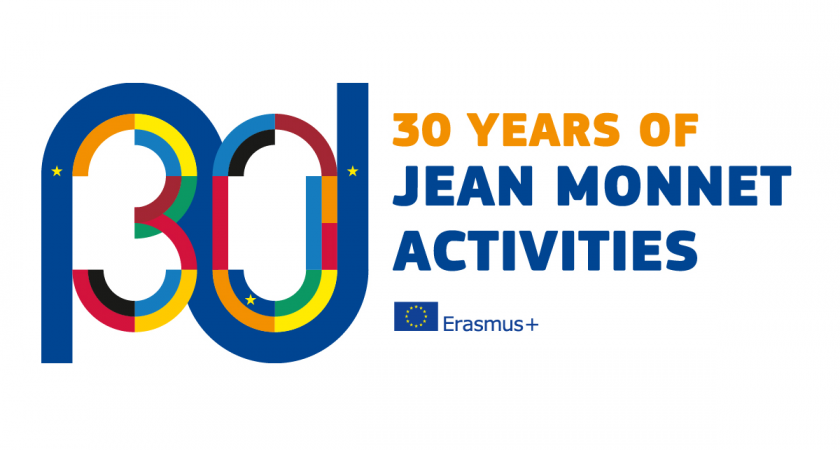
Can EU membership convince Serbia to end its coal addiction?
Published on
Translation by:
Serbia has been an official EU candidate country since 2012. In 2019, its capital Belgrade recorded some of the worst air quality levels in the world. Will the prospect of EU membership cause the country to rethink its dependency on coal?
“Sometimes, it seems that they care more about coal than people.” Vesna Terzić’s smile soon fades as she pulls out a photo album covered with a thick layer of grey dust. “In any case,” the 57-year-old continues, “whatever way the wind blows, dirty air always comes.”
Outside Vesna's house in Veliki Crljeni—a town forty kilometres from Serbian capital Belgrade—the smell of sulfur hangs in the air, dark dust accumulates along the main street and a river of blackened water separates the houses from a coal strip mine.
From Veliki Crljeni to Kostolac: desolation, pride, and hope
Since 1956, Kolubara A, the oldest coal power plant in Serbia, has operated in Veliki Crljeni. It is run by EPS (Eektroprivreda Srbije, the state-owned electric company and largest national employer). The plant is enormous, burning 30 million tonnes of coal a year and providing more than half of the country's electricity. According to HEAL (Health and Environment Alliance), an international NGO working on the health implications of climate change, the plant is one of the worst polluters in Europe. Serbia depends on the extraction and combustion of its substantial resources of lignite, a type of coal that is both inefficient and very harmful to humans, for 70 percent of the country's electricity.
In 2014, excessive rain brought floods to the homes of Vesna and her neighbours. During the emergency, they claim that priority was given to protecting the power plant.
“When EPS protected the mines and the power plant, allowing our homes to be flooded, we understood that we had a big problem,'' Vesna recounts.
She sits surrounded by friends who have gathered at her house for the occasion, cigarette and wood smoke from the stove hang in the air.
Žika has worked for almost forty years in the branch of the plant where the coal is “dried” before burning.
“The plant was not designed to last 60 years. It should already be closed, obsolete,” he says.
Žika accuses the government of corruption and a lack of concrete measures to improve working conditions at the plant:
“Our children are all leaving. Those who stay do so because they have no alternative.”
Last October, devices installed in central Belgrade recorded a 200 μg/m3 concentration of PM10 (a polluting particulate material that is harmful to humans), which immediately triggered alarm. In the same period, the air quality database AirVisual ranked Belgrade as one of the top 10 cities worldwide with the worst polluted air alongside Delhi and Beijing. Although the problem of "fine dust" is mainly caused by the use of wood stoves and inefficient domestic heating systems, the warning reopened the debate about the Serbian energy model.
“According to this logic, we should make the news 365 days a year,” Vesna interjects. “It's a shame that these types of measurements have never been recorded in Veliki Crljeni.”
Kostolac is a small town on the banks of the Danube, a few kilometres from the Romanian border. As with Veliki Crljeni, no reliable measurements of air quality are taken here and yet two coal power plants operate with some of the highest emission levels in Europe.
“I've never suffered particular health problems,” Radisav claims, rapping his knuckles on the table two times for luck before continuing, “but over 35 years of working in the mine, I've seen coworkers get sick and die.”
When he speaks of the “mine” he refers to the dozens of deposits throughout the Balkans where he has worked since the mid '80s. He says that Kostolac's mine is one of the largest he has seen. After his shift in the afternoon, he shares a beer with his co-worker Gmiz. Both were born in Kosovo.

At the entrance of the town, a high speed conveyor belt distributes coal day and night.
“The excavator never stops,” Radisav proudly explains, showing mobile phone videos of the machines he operates at work. In Kostolac, the administrative headquarters of EPS resemble a town hall. Radisav and Gmiz wear uniforms with the company logo.
“I began this work because it was what was available where I grew up,” Gmiz explains. “Even if younger generations of Serbs don't strike me as interested in environmental issues, I hope that admittance into the EU will change something about our country's energy model.”
EU membership: an opportunity for change?
Serbia's poor air quality is at the top of the negotiators’ list of worries as the country seeks admittance into the European Union, a process which began six years ago. A report conducted by the United Nations found almost 5 thousand premature deaths due to air pollution in the western Balkans, highlighting the Belgrade region (and Veliki Crljeni) as the most affected.
According to Simon Ilse, Head of Office for the Heinrich Böll Foundation (a think-tank affiliated with the German Green Party) in Belgrade , potential EU membership could be a spark for change. A whole chapter of the negotiation process - Chapter 27 - is dedicated to the environment.
“It could give Serbia a decisive incentive to take on the environmental challenge,” Ilse claims.
But it's not so straightforward, says Professor Mirjana Drenovak Ivanović, Jean Monnet Chair in European Environmental Law at the University of Belgrade.
“This is the most complex and costly aspect for the country.” Ivanovic, who is part of Serbia's official negotiating team working on Chapter 27, outlines. “A third of the laws that need to be changed in our legislation relate to the environment. The main challenges will be air pollution, waste treatment, and water treatment.”
A coal-free future?
Meanwhile only a few kilometres from Veliki Crljeni, a new coal power plant is emerging - Kolubara B. According to Bankwatch Network, an environmental NGO, the Italian energy company Edison was the only European company to submit a bid to partner on the project, which is also supported by Chinese investment.
Not far from the homes of Vesna and Žika, beyond some dilapidated housing occupied by refugees from Kosovo, the land has been expropriated,the excavators are preparing to begin work and the second chimney nearly identical to that of Kolubara A is nearly completed. Further construction is planned to start in 2020. It's not the future that Vesna and Žika envisioned for their town:
“We feel alone, abandoned and ignored. The EU sent funds to help limit power plant emissions, but they didn't make any difference,” Žika says. “Here they continue to open mines and dig the same as before, if not more.”
He looks sorrowfully at the cranes surrounding the construction site: “We want Serbia to join the European Union, of course. But I don't think there will be a coal free future in the Balkans.”

The series AcadeMy is realized with the support of the European Union's Jean Monnet program. For additional information about the objectives and the role of the Jean Monnet program take a look at the European Union's official website.
Translated from La Serbia del carbone vuole l'Ue, ma Bruxelles frena. E la Cina è alla finestra



